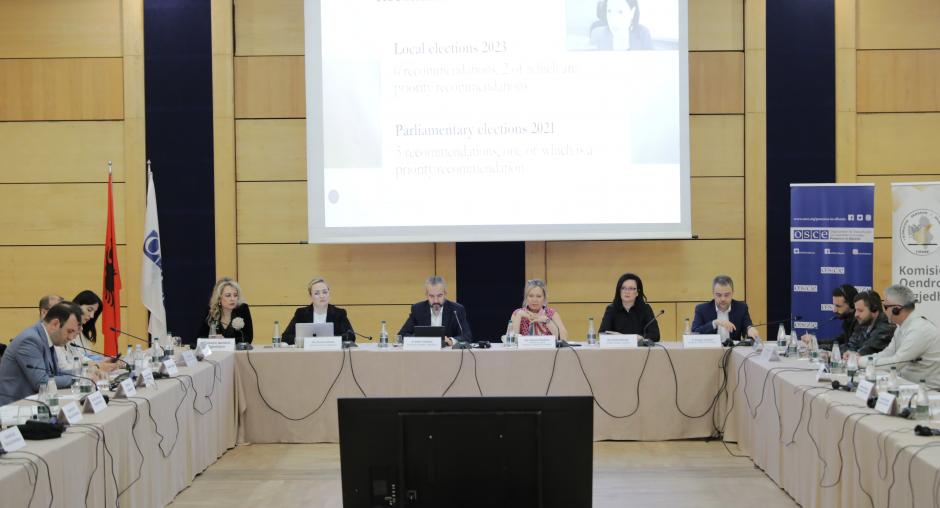OSCE Presence, Central Election Commission organize technical workshop on enhancing voter outreach campaigns

In view of the 2025 parliamentary elections in Albania, the OSCE Presence and the Central Election Commission (CEC) organized a technical workshop on findings and recommendations regarding voter education, on 3 April 2024.
Opening the event, Acting Head of OSCE Presence in Albania Clarisse Pasztory said: “There are a number of issues that are raised by the OSCE/ODIHR recommendations – both by the most recent ones on local elections, but also previous ones – that do not necessarily require legislative change or the amendment of the electoral or any other law, but much rather implementation of the law and/or in some cases sanctioning of the non-implementation of the law.”
Considering the 2023 voter information and education campaign among the best, State Election Commissioner Ilirjan Celibashi said that what has been achieved so far constitutes a very good basis to develop education and information programmes especially for certain categories of voters. He added that other institutions should increase the focus on some categories that, for legal reasons, do not have access to the voting process.
The activity served as a discussion forum for representatives and experts of the CEC, other state institutions, civil society and political parties on how to improve the informative, educational and awareness-raising voter campaigns.
Discussions focused on the findings of OSCE/ODIHR election observation reports and their recommendations to improve voter education programmes, as well as the findings of domestic observer groups and the experience from the observations of civil society organizations.
Participants stressed the importance of a broader strategy for voter outreach tailored to the diverse needs of various voter categories, in time for the upcoming elections. A particular emphasis was given to engaging underrepresented groups, such as national minorities, people with disabilities – including visually impaired voters – women, youth, as well as voters residing in rural or remote areas.
